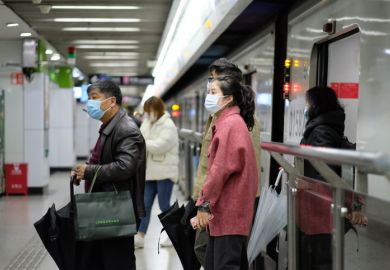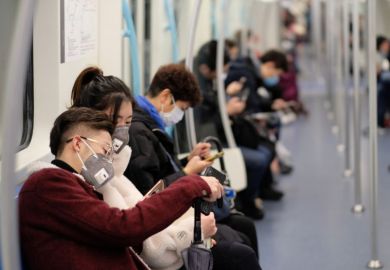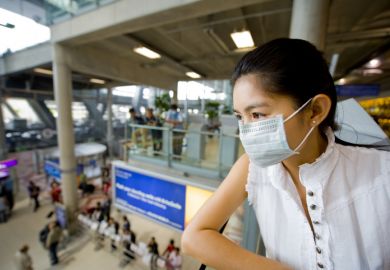Chinese professors across the globe are becoming increasingly vocal about the handling of the coronavirus outbreak, even as the space for free speech shrinks in mainland China.
Some Western-based Chinese academics have posted essays written by their mainland counterparts that might otherwise be blocked. China Digital Times, a bilingual website run by Xiao Qiang, a professor at the University of California, Berkeley, posted an explosively critical essay by Xu Zhangrun, a Tsinghua University law professor.
The title, “Angry people are no longer afraid”, refers to larger public discontent, but it may also refer to Professor Xu himself, as he continues to publish despite a previous suspension from Tsinghua for an essay criticising the elimination of Chinese presidential term limits.
Xu Zhiyong (no relation to Xu Zhangrun), who was a law lecturer at the Beijing University of Posts and Telecommunications before his arrest for activism several years ago, has also released a new essay about the epidemic. Writing on social media, he said that China’s leadership was incapable of dealing with large-scale crises. According to the South China Morning Post, Dr Xu was “in hiding from the police”.
The Chinese government issued new guidelines on social media discussions not long after the professors’ posts. The 6 February death of Li Wenliang, one of the disease’s early whistleblowers, also prompted online criticism and subsequent censorship.
Two University of Hong Kong medical professors recently took advantage of the city’s relatively higher level of academic freedom to voice their opinions on popular radio shows.
Yuen Kwok-yung, a world-renowned microbiologist, became the first expert to call the Hong Kong situation a “community outbreak” and warned that the city could become the “next Wuhan”. He also said he “understood” striking medical workers, who have been a thorn in the government’s side.
He told Times Higher Education that he was driven by his conscience and concern for public well-being. “When control measures or public response do not go according to scientific evidence, we should speak out,” he said.
Professor Yuen, who visited Wuhan a few weeks earlier as an expert adviser, said that calling for better public policy “can be important if the academics are really correct in their calls”.
Even the HKU business school piped in with a Chinese-language commentary by Stephen Ching, an economics professor who called out the World Health Organisation for “unrealistic” measures.
Overseas professors have also published analyses. Minxin Pei, director of international studies at Claremont McKenna College in the US, wrote on the website of the Australian Strategic Policy Institute about Beijing’s “systemic cover-ups of scandals and deficiencies”.
Changcheng Zhou, a biomedical sciences professor at the University of California, Riverside, told THE that “we scientists carry an array of responsibilities including social responsibilities to the society and large communities. In fact, it is no longer acceptable for us to only focus on our own scientific communities.”
POSTSCRIPT:
Print headline: Chinese scholars increasingly critical of coronavirus response
Register to continue
Why register?
- Registration is free and only takes a moment
- Once registered, you can read 3 articles a month
- Sign up for our newsletter
Subscribe
Or subscribe for unlimited access to:
- Unlimited access to news, views, insights & reviews
- Digital editions
- Digital access to THE’s university and college rankings analysis
Already registered or a current subscriber?








